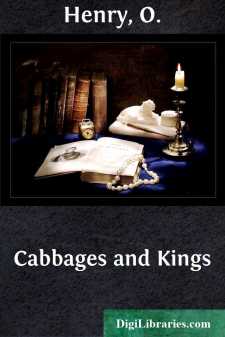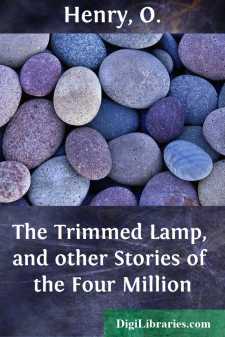Categories
- Antiques & Collectibles 13
- Architecture 36
- Art 48
- Bibles 22
- Biography & Autobiography 813
- Body, Mind & Spirit 142
- Business & Economics 28
- Children's Books 17
- Children's Fiction 14
- Computers 4
- Cooking 94
- Crafts & Hobbies 4
- Drama 346
- Education 46
- Family & Relationships 57
- Fiction 11829
- Games 19
- Gardening 17
- Health & Fitness 34
- History 1377
- House & Home 1
- Humor 147
- Juvenile Fiction 1873
- Juvenile Nonfiction 202
- Language Arts & Disciplines 88
- Law 16
- Literary Collections 686
- Literary Criticism 179
- Mathematics 13
- Medical 41
- Music 40
- Nature 179
- Non-Classifiable 1768
- Performing Arts 7
- Periodicals 1453
- Philosophy 64
- Photography 2
- Poetry 896
- Political Science 203
- Psychology 42
- Reference 154
- Religion 513
- Science 126
- Self-Help 84
- Social Science 81
- Sports & Recreation 34
- Study Aids 3
- Technology & Engineering 59
- Transportation 23
- Travel 463
- True Crime 29
Options
by: O. Henry
Description:
Excerpt
"THE ROSE OF DIXIE"
When The Rose of Dixie magazine was started by a stock company in Toombs City, Georgia, there was never but one candidate for its chief editorial position in the minds of its owners. Col. Aquila Telfair was the man for the place. By all the rights of learning, family, reputation, and Southern traditions, he was its foreordained, fit, and logical editor. So, a committee of the patriotic Georgia citizens who had subscribed the founding fund of $100,000 called upon Colonel Telfair at his residence, Cedar Heights, fearful lest the enterprise and the South should suffer by his possible refusal.
The colonel received them in his great library, where he spent most of his days. The library had descended to him from his father. It contained ten thousand volumes, some of which had been published as late as the year 1861. When the deputation arrived, Colonel Telfair was seated at his massive white-pine centre-table, reading Burton's "Anatomy of Melancholy." He arose and shook hands punctiliously with each member of the committee. If you were familiar with The Rose of Dixie you will remember the colonel's portrait, which appeared in it from time to time. You could not forget the long, carefully brushed white hair; the hooked, high-bridged nose, slightly twisted to the left; the keen eyes under the still black eyebrows; the classic mouth beneath the drooping white mustache, slightly frazzled at the ends.
The committee solicitously offered him the position of managing editor, humbly presenting an outline of the field that the publication was designed to cover and mentioning a comfortable salary. The colonel's lands were growing poorer each year and were much cut up by red gullies. Besides, the honor was not one to be refused.
In a forty-minute speech of acceptance, Colonel Telfair gave an outline of English literature from Chaucer to Macaulay, re-fought the battle of Chancellorsville, and said that, God helping him, he would so conduct The Rose of Dixie that its fragrance and beauty would permeate the entire world, hurling back into the teeth of the Northern minions their belief that no genius or good could exist in the brains and hearts of the people whose property they had destroyed and whose rights they had curtailed.
Offices for the magazine were partitioned off and furnished in the second floor of the First National Bank building; and it was for the colonel to cause The Rose of Dixie to blossom and flourish or to wilt in the balmy air of the land of flowers.
The staff of assistants and contributors that Editor-Colonel Telfair drew about him was a peach. It was a whole crate of Georgia peaches. The first assistant editor, Tolliver Lee Fairfax, had had a father killed during Pickett's charge. The second assistant, Keats Unthank, was the nephew of one of Morgan's Raiders. The book reviewer, Jackson Rockingham, had been the youngest soldier in the Confederate army, having appeared on the field of battle with a sword in one hand and a milk-bottle in the other....












